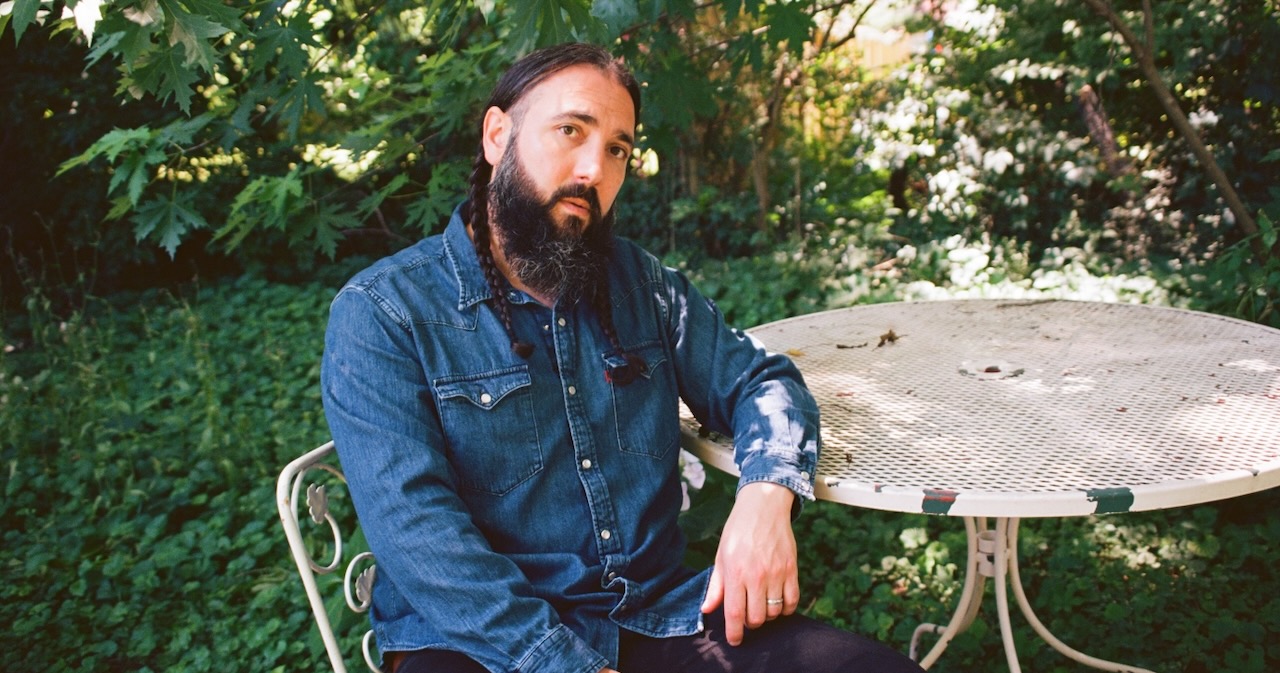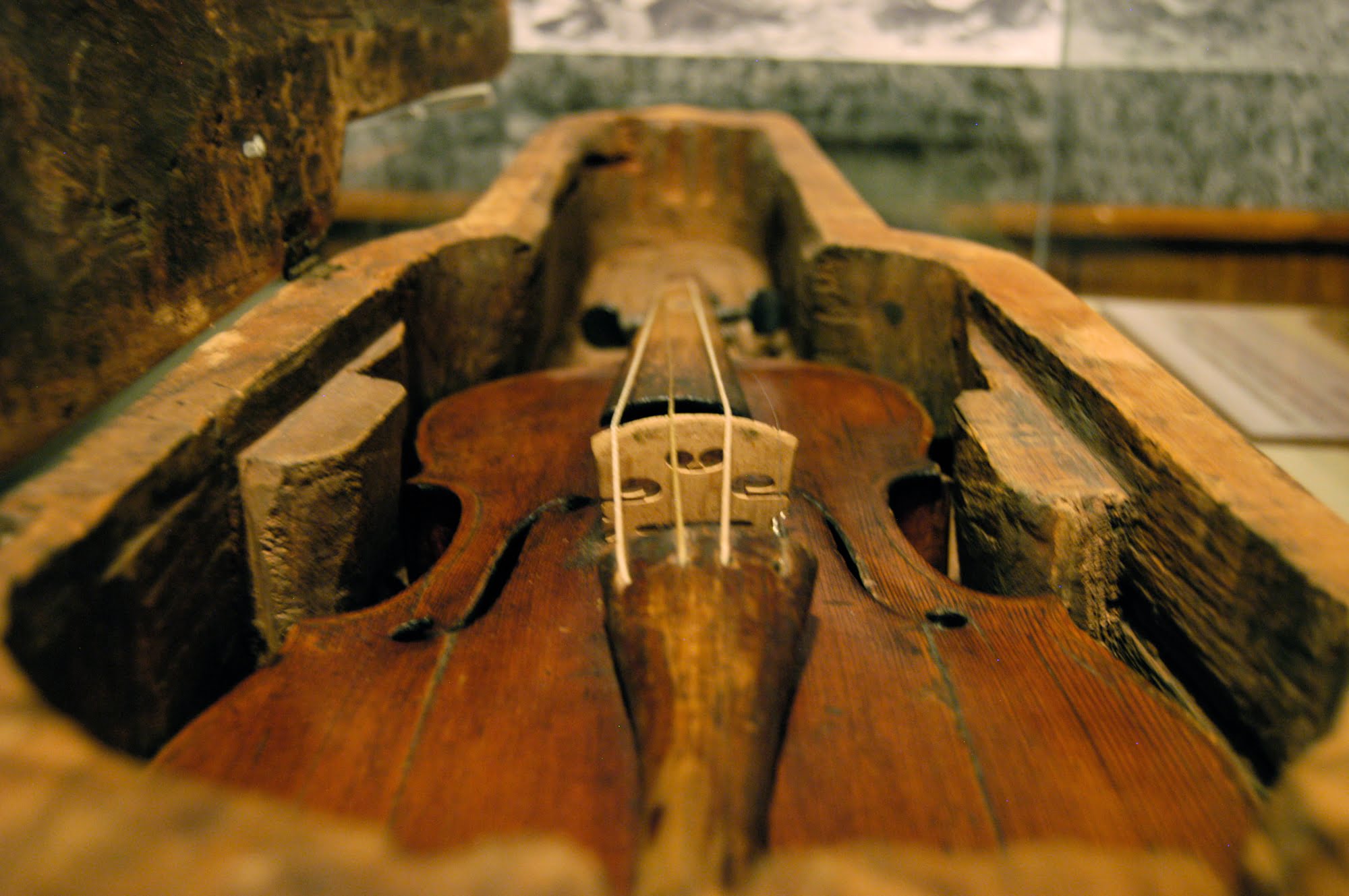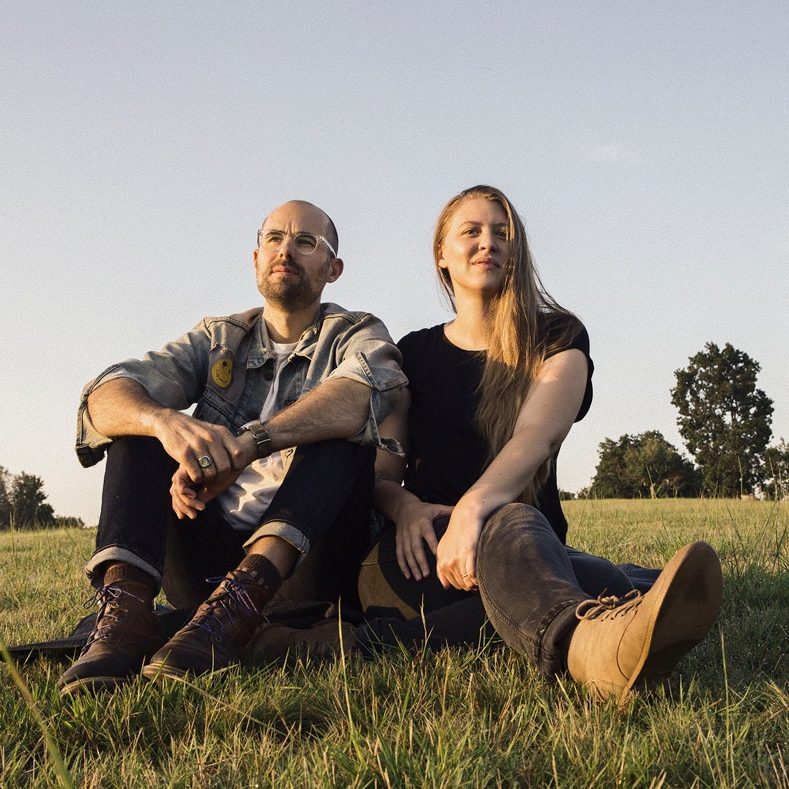It may look rough around the edges, but Ron Pope’s journey through life encapsulates the American dream. He buffs out those spots, uncovering a hefty dose of humility, wisdom, and empowerment on his 11th studio record — American Man, American Music.
On it, the New Jersey-born, Georgia-raised singer uncovers moments from his childhood (like waking up before school to unload semi trucks) to the present day that have shaped him into the man he is and made his musical dreams a reality. But despite its title, the album is anything but exclusionary. Just like our nation’s diversity, American Man, American Music is a patchwork quilt of sounds, stories and experiences that serve to remind us that we’re all dealing with the same struggles and desires no matter what we look like or where we came from.
“I want to make music that other people can take and put into the moments in their lives,” says Pope. “The goal is that if I’m doing it right they’ll feel less alone. I want to put that back into the universe because I’ve taken so much of it out that it’s part of what buoyed me to get me to this point.”
This manifests itself in heartfelt vignettes centered around his family and recently discovered meaning of “home” on songs like the ode to his wife, “In The Morning With the Coffee On,” as well as “Mama Drove a Mustang,” an homage to his mom’s “let it ride” attitude that he wound up carrying into his own musical pursuits. But he’s also not afraid to get political on songs like “Klonopin Zombies,” a story about losing his grandmother that directly calls out the callousness of the pharmaceutical industry and sees him painfully pleading, “I swear there must be a heaven, ’cause where the hell else would someone like you go?”
Speaking by phone from his Nashville home between a mid-morning job and picking his daughter up from school, Pope spoke with BGS about home, family, platforming the next generation of artists and the experience that make up American Man, American Music.
You duet with Taylor Bickett on “I’m Not The Devil.” What spurred you to bring her aboard for it?
Ron Pope: Lately I’ve been finding so much inspiration in new artists. Growing up you tend to fetishize the stuff that came before you, almost like hero worship. Luckily I’ve come up in an era where so many of my contemporaries are masters, from Jason Isbell to John Moreland, which is really cool. But now I’m at a phase in my life where I’m getting more and more inspired by the artists coming in behind us. I remember first hearing Taylor’s songs, reading her lyrics, and seeing people making posts about sunsets and storms with her songs in them and was blown away. That’s what I love about music – you’re always finding new ways to be inspired.
What are your thoughts on the practice of platforming younger artists and what you stand to benefit from it as well?
If you make records your whole life, it’s going to be an ongoing challenge to find things that keep you engaged and excited about making music. It’s like a game that I’m always playing with myself. I want to find things about music that make me feel the way I did when I was a kid. Sometimes when people imagine an artist, they assume you’re only listening to people who sound like the same handful of songs that they know and that’s it, but I listen to all different sorts of music. Just the other night I was making pasta with my daughter in our kitchen listening to Dean Martin. On any given day I’ll move from that to some Tony Rice, Jason Isbell’s new song, Turnpike Troubadours, people like Taylor on Instagram, and then John Prine. I find inspiration everywhere and love that the music I make still feels fun and exciting because of it.
You just mentioned your daughter. I know family plays a big role on this record, from “In The Morning With the Coffee On,” to “Klonopin Zombies,” “Mama Drove a Mustang,” and others. Mind telling me about how that helps to serve as a through line on this project?
The central message is that we all share so many of the same sorts of experiences. For instance, in “Klonopin Zombies” I’m talking about this point in my life when my grandmother passed away eight days after my grandfather, leaving me wildly devastated. In life, we’re all going to experience powerful loss in that way; it’s just a matter of if it has happened to you yet or not. It’s the nature of living. My goal for doing that was to reach people on a more general level. If you are blessed enough to love people, then one day you will suffer because you lose people.
When I was first starting out, one of the complaints that music industry people would have about my music was that my songs were too specific and didn’t feel general enough, which was weird because for me those are the [kind of] songs that I always felt the most attached to.
Think about the Eagles’ – “Standing on the corner Winslow, Arizona/ Such a fine sight to see/ It’s a girl, my lord, and a flatbed Ford/ Slowin’ down to take a look at me…” or James Taylor’s – “Just yesterday morning, they let me know you were gone/ Suzanne, the plans they made put an end to you.” You’re in the room, but you don’t know who he’s talking to or why. It’s like, how many times in your life have you watched someone struggle with the expectations people put on them? Even though he’s telling a very personal and very specific story, you’re brought in and it reminds you that there’s a human being on the other end of this.
We got to go to all these places and meet a lot of people, and what I have found as I have done that is most people want the same things – they want opportunities for themselves and for their children. They want to know that they’re safe, and that their kids are safe and are going to get educated. We have a lot more in common than we do that separates us, which can be hard to see when you’re just watching videos of people yelling or complaining about how differently they believe your neighbor is.
How does that idea tie into the album’s title – American Man, American Music?
It’s inherently political to say “I am an American man and this is American music.” It’s inherently political, but I didn’t want to make something to bash people over the head, because it’s hard to write stories that are both protest songs that feel like they matter and are actually good songs. So I decided to, with the exception of “I Gotta Change (Or I’m Gonna Die)” – which is a pretty open rebuke of the pharmaceutical industry expresses my anger towards it about the opioid crisis – I try to speak in more sweeping terms and not focus in on the things that I was angry about, instead focusing more on humanity and openness.
I’m following myself from when I was a child in these stories all the way to this moment in my life. I’m singing about the car my mother drove when I was six years old in “Mama Drove a Mustang,” then I’m singing a little prayer for my family that I wrote while I was out on the road in “The Life In Your Years” or how my wife and I have been together for almost 18 years on “I Pray I’ll Be Seeing You Soon.” It makes me realize that I have lived the American dream.
I’m just a regular person from a blue-collar family born to very good-hearted, well-intentioned teenage parents who didn’t have a lot of resources and did their best with the opportunities that were in front of them. There was no reason to believe at the start of my story that I would end up in this place. All of that is in there because I am an American and I am an American man, and I am making American music, but I don’t mean any of that to be exclusionary. So many people that are using all of those words do so to exclude others and I have lived the American dream and want others to be able to do the same. On this album I wanted to focus on telling great stories that highlighted my journey and my humanity and what it took for me to get to this place where I got to as a way of showing that I don’t think it’s something that we should hold hostage. We should want other people to be able to reach these things in a nation built by immigrants on stolen land.
What does “home” mean to you – both as a physical place and as an idea – in relation to this album?
My mom loved us a lot, but we also moved often, which can be destabilizing. When I got to the point in my life where I was out on the road I almost felt engineered to do it, because I never had a real sense of home growing up. When I went on tour it felt like I was supposed to be there, which made it easy to wake up whether I was in Lincoln, Nebraska; Minneapolis, Milwaukee, Pittsburgh, or Pompano Beach. For a long time I thought you had to live that way to write songs.
At one point I was living in New York and hung out with my wife during a break from the road, who at that point I’d known since we were kids in Georgia, but had never dated. Suddenly everything changed and I started feeling her no matter where I was and yearned to be back in New York. I didn’t feel at ease unless I was with her, before realizing that she had become home for me. I’d never understood that homesick feeling that others get until then.
I feel that even more now with our little girl. It’s different, because my wife chose me and knew what I was and what I wasn’t, whereas we chose to bring our daughter into this world. Because of that I feel an even stronger pull from home than I have in the past because this little girl doesn’t care that I sing songs for people, and at the end of the day she doesn’t need that – she just needs me to be her father. It’s important that I’m able to make a living with my music, but it doesn’t make up for the fact that I wasn’t there to witness her losing her first tooth and other core memories. You have to grapple with that every day if you’re going to do this for a living. At the end of my life, if people say I’m a family man before they say I’m a musician, then I did it right.
What has the process of bringing American Man, American Music to life taught you about yourself?
There are points in the process of making any record where you look at yourself in the mirror and ask “Am I full of shit? Or can I actually land this thing?” The content on this album, what I’m talking about, it felt heavier and deeper than some of what I’ve done in the past. And I hate the idea of taking myself too seriously. At the end of the day, I’m an entertainer; everyone who makes music is supposed to be one, no matter how much they call themselves poets and stare at their expensive loafers oh-so-thoughtfully. Whether you’re Bob Dylan or Jackie Wilson or Tom Waits, at your core, you’re fundamentally the same as a clown or a breakdancer. Your job is to bring people joy, to entertain them. Walking around with this understanding has always made me sort of sick to my stomach whenever I find myself taking any of this noisemaking I do too seriously.
But on this album? I surprised myself. We are making music about serious things and I didn’t feel embarrassed or disgusted by it. It’s serious because it’s supposed to be serious; I’m not being a self-important asshole. Somebody needs to talk about the opioid epidemic and no one else was doing it in a way that I felt satisfied with. I did it because I felt like I had to, not to feed some inflated notion I had of myself as a capital A “artistè.” So I guess I learned that I’m not full of shit. Or at least, not entirely full of shit.
Photo Credit: Blair Clark



